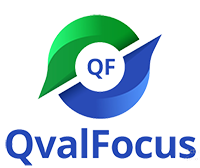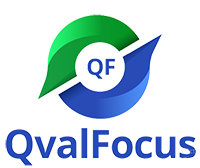send a message
Head Office
frequently asked questions
A comprehensive pharmaceutical recruiting package typically includes: **Sourcing Services**: Access to specialized talent pools including PhD candidates, post-doctoral researchers, experienced pharmaceutical professionals, and regulatory experts **Screening & Assessment**: Technical evaluations, regulatory knowledge verification, laboratory skills assessment, and behavioral competency interviews **Compliance Support**: Background checks, education verification, professional license validation, and regulatory clearance coordination **Market Intelligence**: Salary benchmarking for pharmaceutical roles, competitive landscape analysis, and industry trend insights **Candidate Experience**: Professional communication, interview coordination, feedback management, and offer negotiation support **Onboarding Assistance**: Transition planning, relocation support for specialized roles, and initial integration guidance The package ensures a seamless, compliant recruitment experience that respects both the candidate’s expertise and the employer’s specific pharmaceutical needs.
Specialized pharmaceutical recruitment is critical for several strategic reasons: **Regulatory Compliance**: The pharmaceutical industry operates under strict regulatory oversight. Specialized recruiters understand these requirements and ensure candidates possess necessary certifications, compliance knowledge, and ethical standards. **Technical Expertise**: Pharmaceutical roles demand specific scientific knowledge, from drug development methodologies to quality systems. Specialized recruitment ensures precise matching of technical capabilities. **Innovation & Competition**: The race for breakthrough therapies makes talent acquisition a competitive advantage. Securing top scientific and regulatory talent directly impacts product development timelines and market success. **Risk Mitigation**: Poor hiring decisions in pharmaceutical contexts can result in regulatory violations, product delays, or safety concerns. Specialized recruitment reduces these risks through thorough vetting and industry-specific assessment. **Cultural Fit**: Understanding pharmaceutical organizational cultures—from startup biotech to established pharma—ensures candidates thrive in their new environments, reducing turnover and maximizing productivity.
Recruitment and selection are distinct but complementary processes in pharmaceutical talent acquisition: **Recruitment** encompasses the proactive strategies to attract qualified pharmaceutical professionals. This includes building relationships with universities, attending scientific conferences, engaging with professional associations, and maintaining talent pipelines. The goal is creating awareness of opportunities and generating interest among qualified candidates in the pharmaceutical ecosystem. **Selection** involves the rigorous evaluation process to identify the best-fit candidate from the recruited pool. In pharmaceutical contexts, this includes technical competency assessments, regulatory knowledge verification, cultural alignment evaluation, and ensuring compliance with industry-specific requirements. Together, these processes ensure pharmaceutical organizations secure talent with both the technical expertise and professional attributes necessary for success in highly regulated environments.
Developing a pharmaceutical recruitment budget requires consideration of several specialized factors: • **Agency Fees**: Typically 15-25% of first-year salary for permanent placements • **Advertising Costs**: Job board subscriptions, LinkedIn Recruiter, scientific publications • **Screening Tools**: Technical assessments, behavioral evaluations, and compliance verification • **Travel Expenses**: Interview coordination, relocation support for specialized roles • **Background Checks**: Comprehensive verification including education, certifications, and regulatory clearances • **Time Investment**: Internal HR and hiring manager involvement throughout the process For pharmaceutical roles requiring specialized expertise, budget allocations are typically higher than general industry positions, reflecting the technical nature and compliance requirements of life sciences recruitment.
The pharmaceutical recruitment process follows a comprehensive, compliance-focused approach: 1. **Needs Analysis**: Understanding the specific technical requirements, regulatory knowledge, and cultural fit needed 2. **Targeted Sourcing**: Leveraging industry networks, scientific databases, and professional communities 3. **Credential Verification**: Screening qualifications, certifications, and regulatory compliance 4. **Technical Assessment**: Evaluating scientific knowledge, problem-solving abilities, and industry expertise 5. **Client Interviews**: Facilitating meetings between candidates and hiring teams 6. **Background & Compliance Checks**: Ensuring regulatory clearances and professional verification 7. **Offer Negotiation & Onboarding**: Supporting seamless transitions into new roles
A pharmaceutical recruitment specialist serves as a strategic partner in building high-performing teams within the life sciences industry. They possess deep understanding of pharmaceutical roles, regulatory requirements, and industry trends. Specialists manage the entire recruitment lifecycle—from identifying talent needs and sourcing qualified candidates to facilitating interviews and supporting successful placements. Their expertise ensures that both organizations and professionals find ideal matches that drive innovation and career growth.
An HR manager plays a central role in building and maintaining a strong, motivated team. They are responsible for managing the recruitment process, employee relations, performance evaluations, and overall workplace culture. By aligning talent strategies with business goals, HR managers help ensure the organization runs smoothly and supports employee development.
The recruitment process typically follows a series of well-defined steps to ensure a good match between the employer and candidate:
-
Understanding the role and requirements
-
Attracting suitable candidates through various channels
-
Screening and shortlisting applicants
-
Conducting interviews and assessments
-
Selecting the right candidate
-
Sending an offer and onboarding the new hire
Creating a recruitment budget involves evaluating both direct and indirect costs. Common items to include are:
-
Job advertisement costs
-
Recruiting agency or consultant fees
-
Time spent by HR and hiring managers
-
Interview expenses and assessment tools
-
Onboarding and training resources
Understanding these components can help you plan effectively and ensure a smooth hiring process that fits within your financial goals.
A typical recruiting package includes services or tools that support the full hiring journey—from promoting the job opening and sourcing candidates to screening, interviewing, and onboarding. It may also include tools for background checks, candidate assessments, or support in negotiating and finalizing offers. The goal is to ensure a smooth and professional experience for both the employer and the candidate.
Recruitment plays a key role in helping organizations grow and succeed. It ensures that the right people are brought into the business at the right time. A strong recruitment process improves team performance, supports company culture, reduces turnover, and helps businesses stay competitive by continually refreshing their talent and capabilities.
Recruitment and selection are complementary processes that work together to identify and hire the best talent:
-
Recruitment focuses on attracting a diverse pool of candidates through various channels like job postings, networking, and outreach. The goal is to generate interest and build a broad base of potential candidates.
-
Selection comes after recruitment and focuses on evaluating and choosing the most suitable candidate from the pool. This involves reviewing qualifications, conducting interviews, and assessing how well candidates align with the organization’s needs and values.
Together, these two processes ensure that your organization attracts the right talent and selects candidates who will thrive in their roles.


